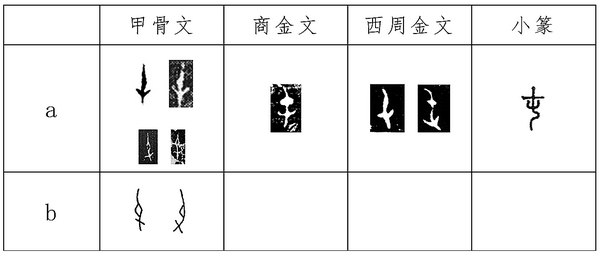A vocation with character
A team of researchers strives to unlock the mysteries and meanings of Chinese oracle bone inscriptions, Wang Xin reports in Shanghai.
By Wang Xin | CHINA DAILY | Updated: 2024-04-11 07:44

Choosing a lifestyle
Contrary to popular belief, paleographers are not just trying to figure out the meaning of individual as-yet-undeciphered characters.
"In our daily work, we are not looking at just a single word. Paleography can be defined as both narrow and broad: the former pertaining to the language and writing system, and the latter to the content recorded. So our study is not about a single character only, but is about the language, its meaning, and gaining a broader view of history," Chen explains.
He says that recognizing, interpreting and explaining a single word can form the basis of their work, but it is neither the only, nor the most important, task. Furthermore, decoding a single character usually requires a lot of effort and the accumulated knowledge from historical materials, aided by solid reasoning and a coherent trail of evidence that runs all the way from ancient times to the present.
A character inscribed on an oracle bone often looks very different to its modern counterpart. Take the character that Jiang won the award for deciphering as an example. The original character looks extremely simple, with roughly two strokes. As is often the case with ancient Chinese pictograms, they have become more complicated, written with more strokes, over time. It was eventually confirmed to be a simplified version of a character with 21 strokes: chun.
Furthermore, although chun usually means "foolish" or "stupid "today, based on abundant evidence, historical background, font evolution and contextual interpretation, Jiang reasoned that, in the oracle bone inscriptions, it is used to mean "turbulent".
"We tend to store a bunch of questions in our mind, which may get proved or answered by chance in a flash of inspiration," says Chen, who has been devoted to paleography for about three decades.
Jiang, who has specialized in oracle bone inscriptions for over 20 years, shares similar sentiments: "I think we paleographers are actually quite close to scientists, as we both have to be very focused and employ rigorous logic and evidence, as we pursue the true meaning of the writing."
As one of the leading institutions involved in paleography, the center has won numerous awards on various levels, both by individuals and the team. However, more than the public awards or honors, they care about what they actually contribute to the study.
"Choosing to be an academic is choosing a lifestyle. I have always said that the vocation of the scholar is to create new knowledge. One valuable consensus at our center is that we aim to become 'pure' scholars without too many distractions. We never feel like what we do is boring — even though it might seem so to the public. Instead, we enjoy our work and are having fun every day," Chen says.
























